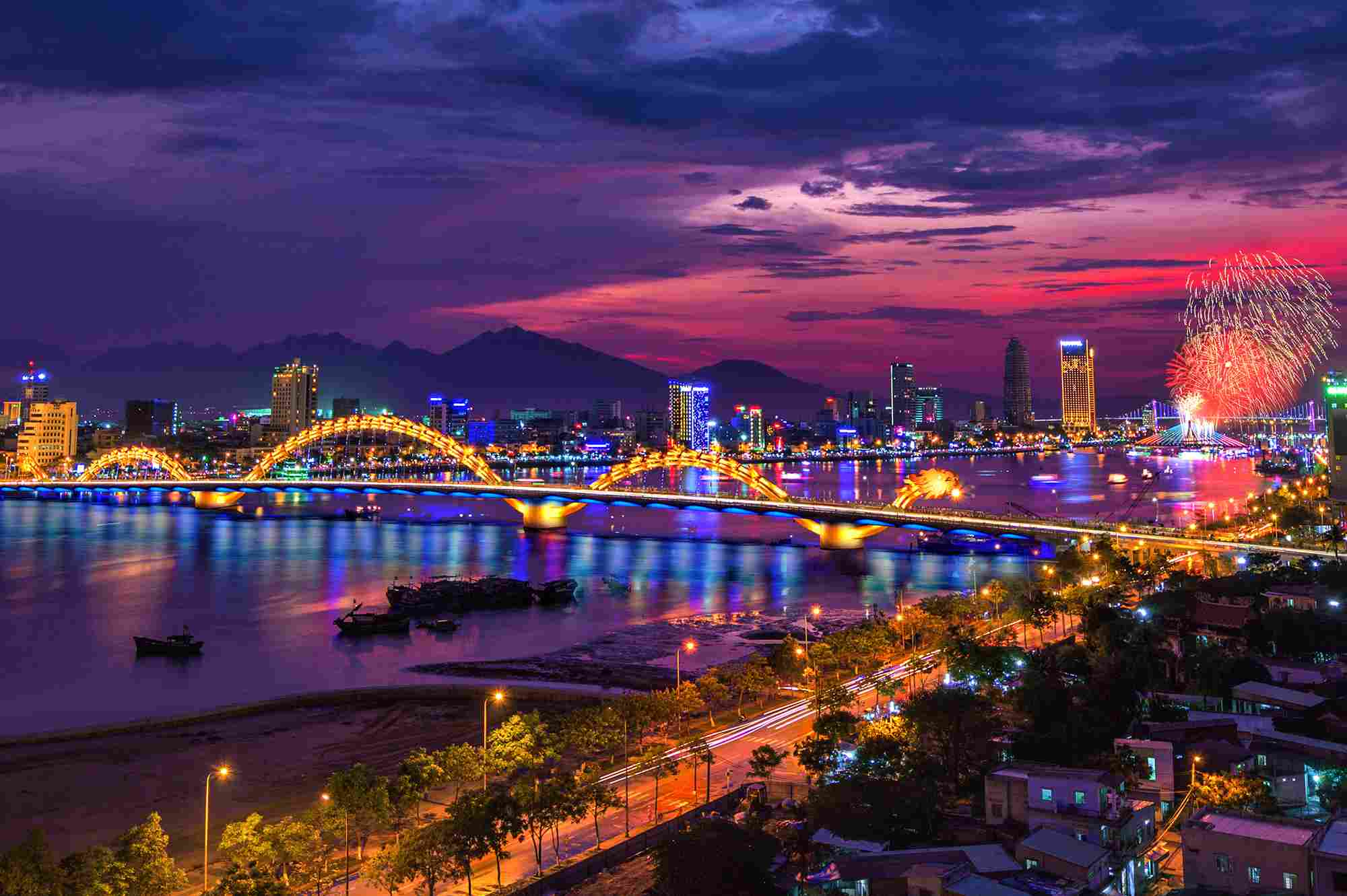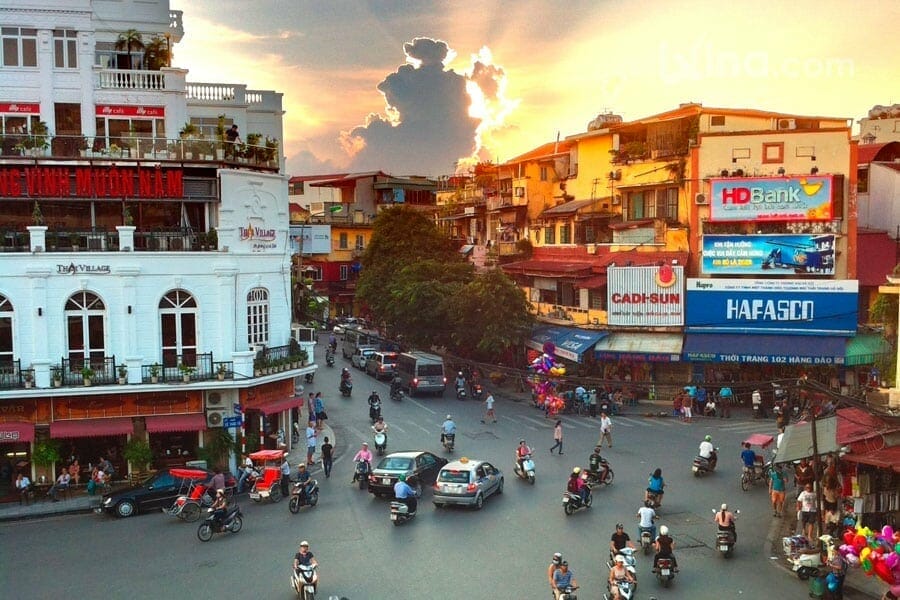Most tour operators must have been happy with the overall performance of the hospitality industry, since global uncertainties and domestic economic instability have not sent their business to a tailspin as feared.
The fast tourism development, however, is still clouded by the imbalance between domestic and outbound travel segments on one hand, and inbound travel on the other.
Leaps and bounds on domestic market
Many travel firms have had a big sigh of relief after finishing the summer travel season, the most important one in the year for the local market, including domestic travel and outbound tours. The development of the market seemed to be beyond even optimistic forecasts as the tourism revenue kept growing despite economic uncertainties and a price hike in the industry.
According to a report of the Vietnam National Administration of Tourism, in the year’s first half alone, the industry catered to 17.5 million local travelers, increasing by 500,000 persons against the same period last year. That result is highly encouraging given the general downbeat mood for the economy.
Regarding the outbound segment, travel firms supposed that the figure was not small, especially for familiar destinations such as Thailand and Singapore, each of them welcoming hundreds of thousands of Vietnamese tourists each year.
Notably, the market has achieved outstanding growth in long-haul tours to faraway nations with expensive costs, including the United States and Europe. The average growth was acknowledged at between 30% and 50% among some companies, regardless of the higher prices.
Between May and July, Hoan My Company each month served eight groups with around 40 persons per group traveling to the United States though the price surged by 10%. According to the company, a ten-day tour to the U.S. worth some US$3,500 still attracts many local customers.
“Tours to the United States, which always increases agreeably in summer, has doubled this year, with 60% of out customers being families who traveled and looked for appropriate schools for their children,” director Nguyen The Khai says.
At Viettours Co., there were two or three tours stateside every month, while the number of tours to Europe has soared by 40-50% with around 90% of customers coming from enterprises.
“Due to economic difficulties, some companies spent less money on tourism, but others such as pharmaceutics, tobacco or petrol companies still book long-distance tours for staffs or important partners,” explains Lu Dinh Phuc, director of the company.
Another tourism operator in HCMC’s District 3 said that the number of travelers booking Europe tours rose by 30% in the summer. Every month the company organized tours for three or four groups with 30-40 members each even though the tour price went up by 20%.
The striking growth of long-haul tour packages at high costs contributed to the sharp rise in revenues of outbound tours this season.
Relating to the phenomenon, some operators explain that this maybe resulted from the gap between the rich and poor. Given the economic recession, the poor who are not the target clients of tourism industry would cut spending, while those whose revenues were almost not impacted keep buying products.
Also, another possible reason is that a number of well-to-do customers tended to eye new and distant places at high costs after enjoying nearby destinations. Therefore, many businesses are busy with promoting new destinations such as Russia and Eastern Europe as well.
Inbound tours yet to prosper
At this time of last year, the market saw a significant rise in the number of MICE (meetings, incentives, conventions, exhibitions) visitors, but this year the situation became quite dreary. Similarly, the number of leisure travelers from other markets just improved slightly or even declined, like the cases of arrivals from Japan and China.
In July, the New World Saigon Hotel reached an average occupancy of 67%, equivalent to the same period last year. The number of businessmen grew steadily, but that of leisure visitors tended to decrease at weekends.
At present, there are not many big MICE missions of 200-300 members to the hotel as in previous seasons. Japan, the most crucial market of the hotel, is recovering but cutting down on spending after earthquake and tsunami disasters in March.
“There is no remarkable increase in the number of customers,” says Dang Duy Hai, deputy general manager of the hotel.
The same thing happened with other travel agencies. The number of visitors from Singapore and Malaysia catered to by Travelink Co. increased slightly compared to the previous season. Especially, the number of Chinese travelers coming to HCMC by air dropped by half.
In the January-July period, there were 3.43 million international visitors coming to Vietnam, increasing by 17.3% year on year, but this growth rate is much lower than the level of 34.9% recorded in the same period last year.
Most businesses agree that apart from some disadvantages such as infrastructure and services, policies to develop the market in general are not effective enough to promote tourism images of Vietnam. In reality, they say, the industry has yet to connect promotion programs with exclusive products of their own market to lure customers.
“If we try to promote Vietnam as a destination for nice seaside or sightseeing, all efforts will be worthless if such promotions are not backed up by services. We need to follow Thailand’s and Singapore’s examples to set up direct air, services, especially attractive programs and introduce them to clients,” a director suggests.
“So far we have failed to prepare enough services and promotions before approaching the target markets. We will likely miss the chance again when Vietnam Airlines opens first direct flights to Britain in early December, since there is no corresponding program along with special products available,” he reckons.
Source: SGT



